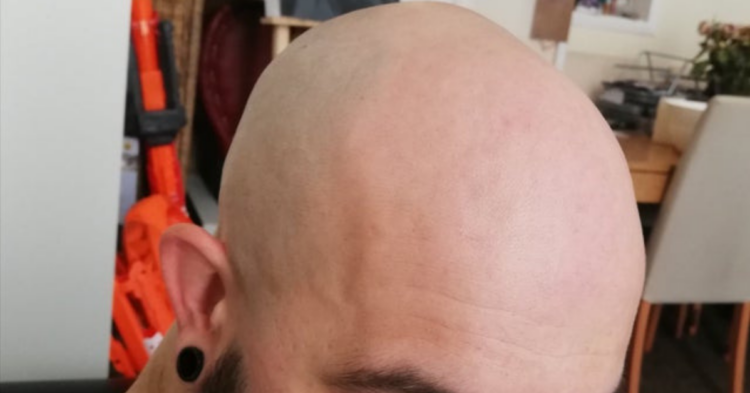Workaholics might bring home some good money, but there are significant trade-offs. You have less time with your loved ones, less time for yourself, and it has been linked with an increase of the risk of stroke.
And now, researchers are saying those long hours on the job might cost you your locks, too, The Sun reported.
Unless you like your noodle bare, you might want to consider cutting back on your hours at the office.
That’s according to researchers in South Korea who have been examining some of the effects of long hours at work.
The results are clear: Men who worked more than 40 hours a week went bald faster than those who did not. Too much work and no play does indeed make for a dull-topped boy.
For their study, the researchers looked at more than 13,000 men between the ages of 20 and 59, following them for a period of four years.

They were grouped according to the hours they spent at work each week: a “normal” group that worked up to 40 hours a week, a “long” group that worked up to 52 hours a week, and a “much longer” group that worked more than 52.
The researchers also accounted for other factors, including age, marital status, education, monthly household income, and smoking.
The hair loss in question is not male pattern baldness, but alopecia.

Alopecia is a condition of hair loss that differs from male pattern baldness in that it’s often patchy and seemingly random, and can include losing eyebrows, eyelashes, and even nose hairs.
In the study, incidences of alopecia increased by 2% among the “normal” group, 3% for the “long” group, and almost 4% for the “much longer group,” and researchers saw it happening to men in their 20s and 30s.
No surprise, the culprit singled out for causing the hair loss is stress.

The damage to follicles and inhibition of hair growth from stress has been observed in mice before, and the study’s authors noted that other research backs that up.
“Other researchers have also suggested that stress can affect injuries and inflammations of hair follicles, cell deaths, and inhibit hair growth,” said Sungkyunkwan University School of Medicine’s Kyung-Hun Son.
In South Korea, the researchers want the government to consider legislation that will prevent the kind of long hours that lead to damaging stress.

“Limitation of working hours in order to prevent alopecia development may be more necessary from younger workers, such as those in the 20s and 30s, at which hair loss symptoms start to appear,” said Son.
“Preventive interventions to promote appropriate and reasonable working hours are required in our society.”
While a legislative solution might not be possible everywhere, this is a good reminder to take your vacation days and enjoy them, if nothing else.
h/t: The Sun

















































